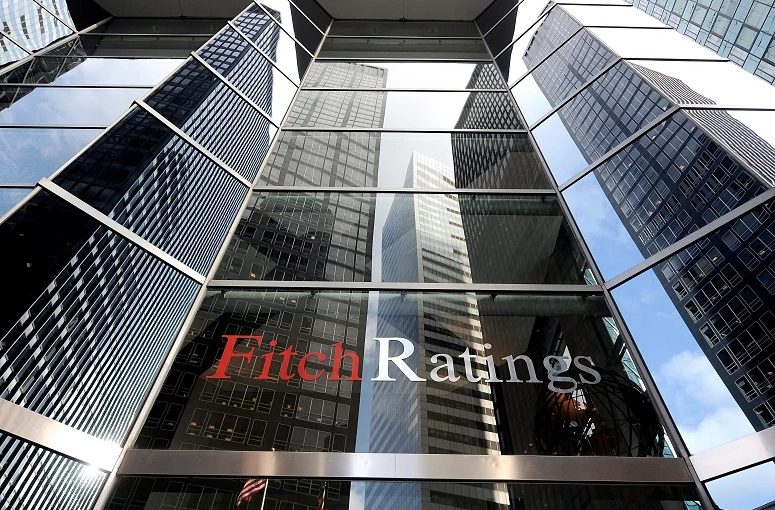Mozambique: Laudato Si’ initiative inspires ecumenical gathering for peace and the environment
Fitch affirms Mozambique at ‘CCC+’

File photo: Lusa
Fitch Ratings – London – 11 Aug 2023: Fitch Ratings has affirmed Mozambique’s Long-Term Foreign-Currency Issuer Default Rating (IDR) at ‘CCC+’, and withdrawn the ‘CCC+’ Long-Term Local-Currency IDR. Fitch typically does not assign Outlooks to sovereigns with a rating of ‘CCC+’ or below.
A full list of rating actions is at the end of this rating action commentary.
The withdrawal of Mozambique’s Local-Currency IDR reflects the absence of reliable information on the timely resolutions of late coupon payments on unrated domestic government bonds (local currency).
KEY RATING DRIVERS
The withdrawal of Mozambique’s Local-Currency IDR reflects the following key rating drivers and their relative weights:
HIGH
Insufficient Domestic Bond Market Information: Fitch understands that short delays in coupon payments on unrated domestic government bonds (local currency) have been a structural feature of Mozambique’s bond market in recent years. Between January and May 2023, in addition to delays on coupon payments, the government was also late with principal payments, reflecting liquidity pressures from cyclone Freddy and an overrun in expenditure on public sector salaries as well as significant shortcomings in public financial management. Fitch understands that all principal repayment delays were cured within up to nine days, but does not have reliable information to monitor the timeliness of coupon payments.
Mozambique’s ‘CCC+’ Foreign-Currency IDR reflects the following key rating drivers:
Substantial Credit Risk: Mozambique’s ‘CCC+’ rating reflects elevated government debt levels, persistent fiscal deficits, weak public financial management, low GDP per capita, weak governance indicators and a challenging security situation. The agreement of a three-year USD456 million Extended Credit Facility (ECF) with the IMF in 2022, positive momentum in the development of the liquefied natural gas (LNG) sector, and measures to address the fiscal slippage of 2022, provide some support to creditworthiness.
Strong Economic Growth: Fitch expects real GDP growth to accelerate to 6.4% in 2023 and to average 4.9% over 2024-2025, from 4.2% in 2022. This will primarily reflect an LNG-led increase in the output of the extractive sector, as the production capacity from Eni’s Coral South floating LNG platform increases to 70% and 90% in 2023 and 2024, respectively (total capacity is expected to be of 3.73 million tonnes per year).
Growth throughout 2024-2025 will be supported by the resumption of the construction of Total’s USD20 billion LNG project, which we assume will being in 1Q24, given the improvements in the security conditions in Cabo Delgado throughout 2023. Our forecasts imply that Mozambique real GDP growth will remain well above the average 3.2% we expect for the ‘B’/’C’/’D’ median over 2023-2025.
Corrective Measures to Narrow Deficit: Fitch expects Mozambique’s fiscal deficit to narrow to 3.6% of GDP in 2023, from 4.5% in 2022, driven by higher revenues and measures to correct the overrun on public sector salaries in 2022. Revenue will increase by 1pp, reflecting higher tax revenue, mainly from the LNG sector and the expansion of the personal income tax base resulting from the public sector wage scale reform. Expenditure will be unchanged, as election-related spending and interest payments offset lower salary expenses. A 20% pay cut for public sector workers and a reduction in salaries and subsidies for elected officials have been introduced to offset the 2pp overrun in costs of pay reform.
Fitch expects the fiscal deficit to narrow further, to 1.1% in 2025. This will reflect a decline in expenditure by 3.7pp to 28.1% of GDP by 2025, as salary expenses decline due to a reduction in the number of employees (replacing only one in three leaving employees) and election-related spending subsides. While we expect tax revenue to increase by 0.8pp over the same period (to 21.7% of GDP), total revenue will decline to 27.0% of GDP due to lower grant disbursements.
IMF Programme Eases Financing Constraints: Mozambique’s amortisations amount to 4.1% of GDP in 2023 and 3.5% in 2024 (external amortisations averaging 2.2% of GDP over the period). The gross financing needs will be met through external disbursement from the official sector (IMF, which approved the second review of the ECF in July, World Bank, and African Development Bank), the use of deposits and advances from the central bank, as well as issuances in the domestic bond market.
Nevertheless, the fiscal slippage in 2022 has led to a significant increase in domestic borrowing and could further dampen banks’ appetite for government bonds, which remains below the levels from 1H21 and before. The narrowing of the deficit over our forecast horizon will be central to Mozambique maintaining access to domestic financing.
Debt/GDP to Decline on Strong Growth: General government debt declined to 100% of GDP in 2022, from 110% in 2021, driven by strong nominal GDP growth of 16%. Fitch expects debt/GDP to decline further over the forecast horizon to 87.2% in 2025, reflecting nominal GDP growth of 40% over the period. Our general government debt numbers include central government debt, the debt of the national hydrocarbons company (ENH), and loans related to the ‘hidden debt’ scandal (Proindicus and MAM).
Mozambique’s debt/GDP ratio is exposed to significant exchange-rate risks as 77% of the total debt stock is foreign-currency denominated. The metical has been stable relative to the US dollar since July 2021, partly reflecting tight monetary policy (cumulative 400bp policy rate increase throughout 2021-2022) and the central bank’s provision of FX to fuel importers (ended in June 2023), but renewed external pressures could lead to significant depreciation of the exchange-rate.
International Reserves to Stabilise: Fitch expects Mozambique’s current account deficit (CAD) to narrow substantially to 13.5% of GDP in 2023, from 33% in 2022, largely reflecting a significant decrease in imports associated with megaprojects, following the import of Coral South’s floating LNG platform in 2022 (22% of GDP or USD4.4 billion). The CAD will then jump to 35.5% of GDP in 2024 and 37.6% in 2025, due to imports associated with Total’s Area 1 LNG project. The impact of megaprojects on international reserves and Mozambique’s broader external stability is limited, as they are fully financed by financial account inflows (foreign direct investment and trade credits).
We expect Mozambique’s international reserves to increase to USD3.0 billion in 2023 and USD3.5 billion at end-2025, from USD2.7 billion in 2022. The increase in reserves will be driven by lower food and fuel import costs, a marginal contribution from LNG exports, and the resumption of Total’s Area 1 project (12.5% of the total investment will have to be contracted domestically).
ESG – Governance: Mozambique has an ESG Relevance Score (RS) of ‘5’ for both Political Stability and Rights and for the Rule of Law, Institutional and Regulatory Quality and Control of Corruption. These scores reflect the high weight that the World bank Governance indicators (WBGI) have in our proprietary Sovereign Rating Model. Mozambique has a low WBGI ranking at 21.4, reflecting the absence of a recent track record of peaceful political transitions, violence associated with the insurgency in the northern part of the country, relatively weak rights for participation in the political process, weak institutional capacity, uneven application of the rule of law and a high level of corruption.
RATING SENSITIVITIES
Factors that Could, Individually or Collectively, Lead to Negative Rating Action/Downgrade
-Public Finances: Signs of stress in financing conditions, for example, due to reduced ability to access external financing sources and/or falling demand in the domestic government bond market, for example, as a result of a worsening fiscal position.
-External Finances: A significant decline in international reserves, for example, reflecting reduced access to external financing, a greater burden from LNG projects on the balance of payments than currently expected or developments in the foreign exchange market.
Factors that Could, Individually or Collectively, Lead to Positive Rating Action/Upgrade
-Public Finances: A decline in the public debt/GDP ratio, for instance, as a result of a sustained reduction in the budget deficit and/or court decisions for Mozambique’s state-owned entities’ debt obligations, backed by an improvement in public finance management.
-Macro: Greater confidence in medium-term growth prospects, through the timely execution of the LNG megaprojects.
SOVEREIGN RATING MODEL (SRM) AND QUALITATIVE OVERLAY (QO)
Fitch’s proprietary SRM assigns Mozambique a score equivalent to a rating of ‘CCC+’ on the Long-Term Foreign-Currency IDR scale. However, in accordance with its rating criteria, Fitch’s sovereign rating committee has not utilised the SRM and QO to explain the ratings in this instance. Ratings of ‘CCC+’ and below are instead guided by the rating definitions.
Fitch’s SRM is the agency’s proprietary multiple regression rating model that employs 18 variables based on three-year centred averages, including one year of forecasts, to produce a score equivalent to a LT FC IDR. Fitch’s QO is a forward-looking qualitative framework designed to allow for adjustment to the SRM output to assign the final rating, reflecting factors within our criteria that are not fully quantifiable and/or not fully reflected in the SRM.
COUNTRY CEILING
The Country Ceiling for Mozambique is ‘B-‘, 1 notch above the LT FC IDR. This reflects moderate constraints and incentives, relative to the IDR, against capital or exchange controls being imposed that would prevent or significantly impede the private sector from converting local currency into foreign currency and transferring the proceeds to non-resident creditors to service debt payments.
Fitch’s Country Ceiling Model produced a starting point uplift of 0 notches above the IDR. Fitch’s rating committee applied a +1 notch qualitative adjustment to this, under the Balance of Payments Restriction pillar reflecting the fact that capital controls exist, but they are limited and have not constrained the private sector’s ability to convert the metical into FC and/or transfer funds abroad. The prospects of receiving significant inflows of investment and financing to develop large gas reserves reduce incentives to introduce capital controls.
BEST/WORST CASE RATING SCENARIO
International scale credit ratings of Sovereigns, Public Finance and Infrastructure issuers have a best-case rating upgrade scenario (defined as the 99th percentile of rating transitions, measured in a positive direction) of three notches over a three-year rating horizon; and a worst-case rating downgrade scenario (defined as the 99th percentile of rating transitions, measured in a negative direction) of three notches over three years. The complete span of best- and worst-case scenario credit ratings for all rating categories ranges from ‘AAA’ to ‘D’. Best- and worst-case scenario credit ratings are based on historical performance. For more information about the methodology used to determine sector-specific best- and worst-case scenario credit ratings, visit https://www.fitchratings.com/site/re/10111579.
REFERENCES FOR SUBSTANTIALLY MATERIAL SOURCE CITED AS KEY DRIVER OF RATING
The principal sources of information used in the analysis are described in the Applicable Criteria.
ESG CONSIDERATIONS
Mozambique has an ESG Relevance Score of ‘5’ for Political Stability and Rights as World Bank Governance Indicators have the highest weight in Fitch’s SRM and are therefore highly relevant to the rating and a key rating driver with a high weight. As Mozambique has a percentile rank below 50 for the respective Governance Indicator, this has a negative impact on the credit profile.
Mozambique has an ESG Relevance Score of ‘5’ for Rule of Law, Institutional & Regulatory Quality and Control of Corruption as World Bank Governance Indicators have the highest weight in Fitch’s SRM and are therefore highly relevant to the rating and are a key rating driver with a high weight. As Mozambique has a percentile rank below 50 for the respective Governance Indicators, this has a negative impact on the credit profile.
Mozambique has an ESG Relevance Score of ‘4’for Human Rights and Political Freedoms as the Voice and Accountability pillar of the World Bank Governance Indicators is relevant to the rating and a rating driver. As Mozambique has a percentile rank below 50 for the respective Governance Indicator, this has a negative impact on the credit profile.
Mozambique has an ESG Relevance Score of ‘4’ for Creditor Rights as willingness to service and repay debt is relevant to the rating and is a rating driver for Mozambique, as for all sovereigns. As Mozambique has a fairly recent restructuring of public debt in 2020, this has a negative impact on the credit profile.
The highest level of ESG credit relevance is a score of ‘3’, unless otherwise disclosed in this section. A score of ‘3’ means ESG issues are credit-neutral or have only a minimal credit impact on the entity, either due to their nature or the way in which they are being managed by the entity. Fitch’s ESG Relevance Scores are not inputs in the rating process; they are an observation on the relevance and materiality of ESG factors in the rating decision. For more information on Fitch’s ESG Relevance Scores, visit www.fitchratings.com/topics/esg/products#esg-relevance-scores.












Leave a Reply
Be the First to Comment!
You must be logged in to post a comment.
You must be logged in to post a comment.